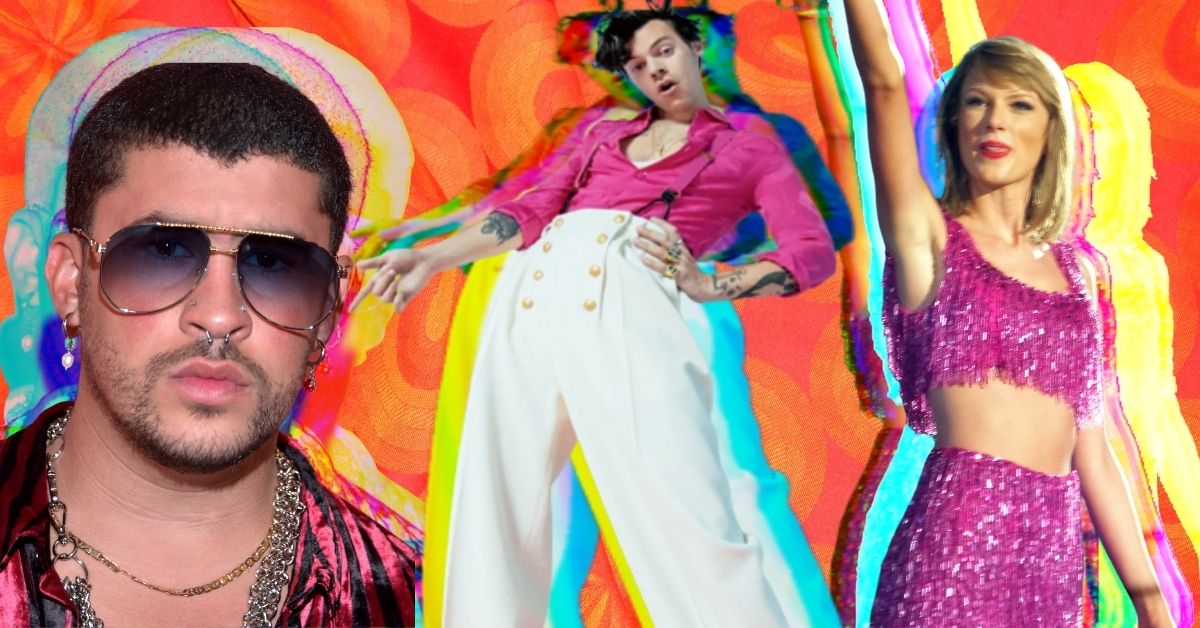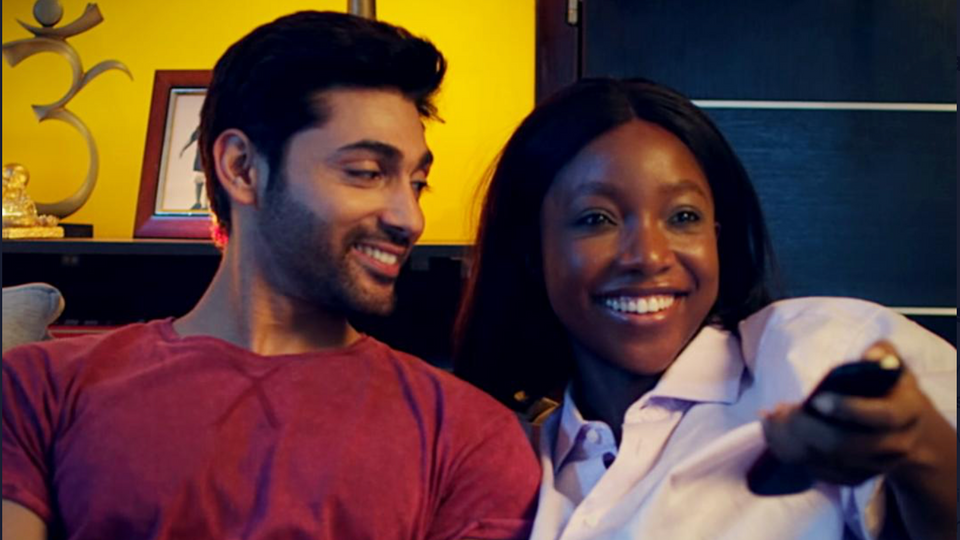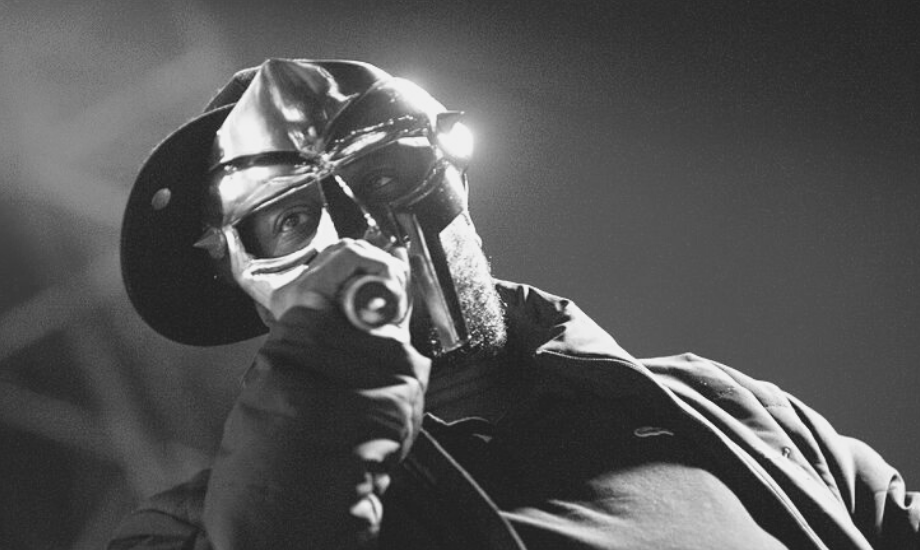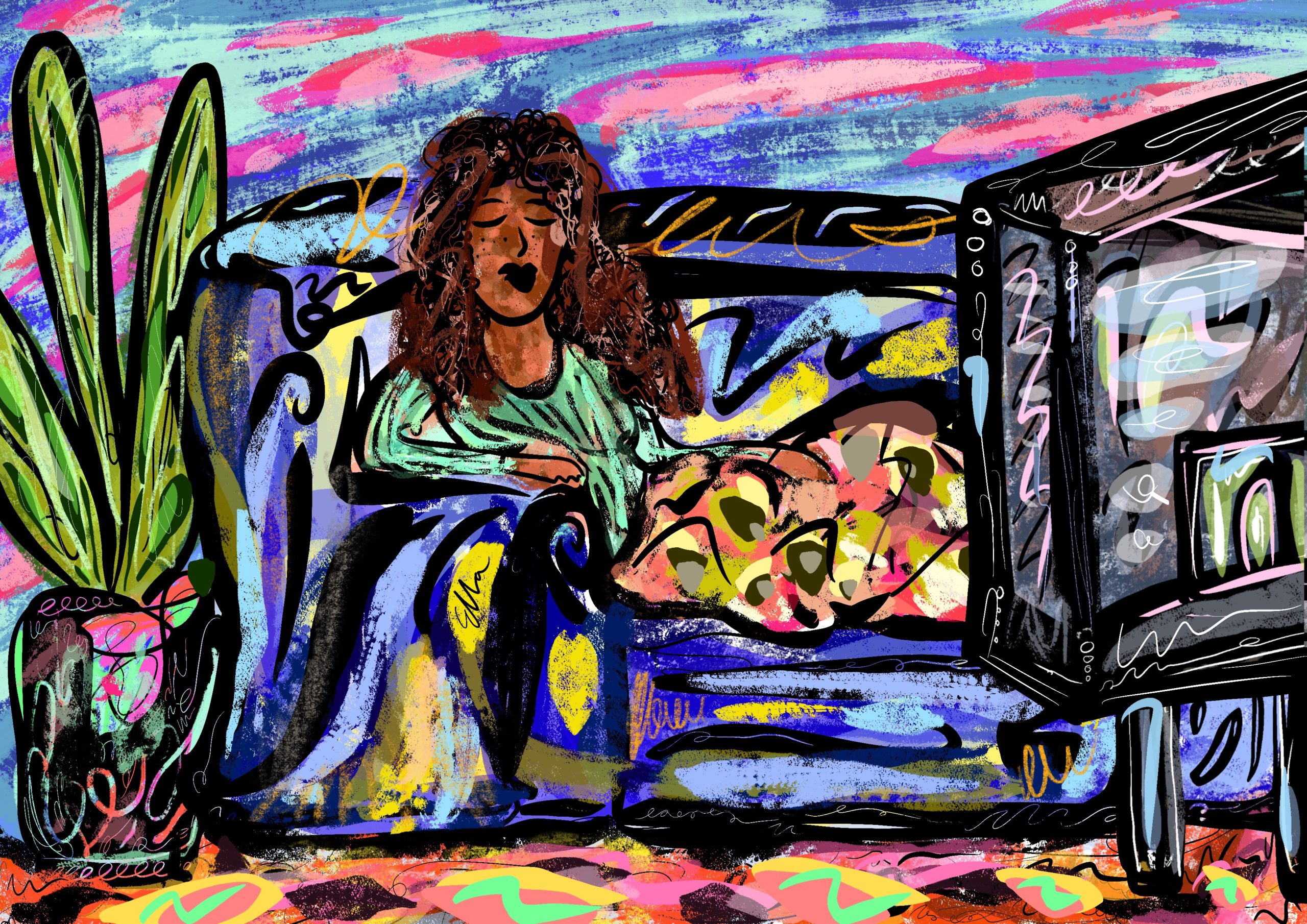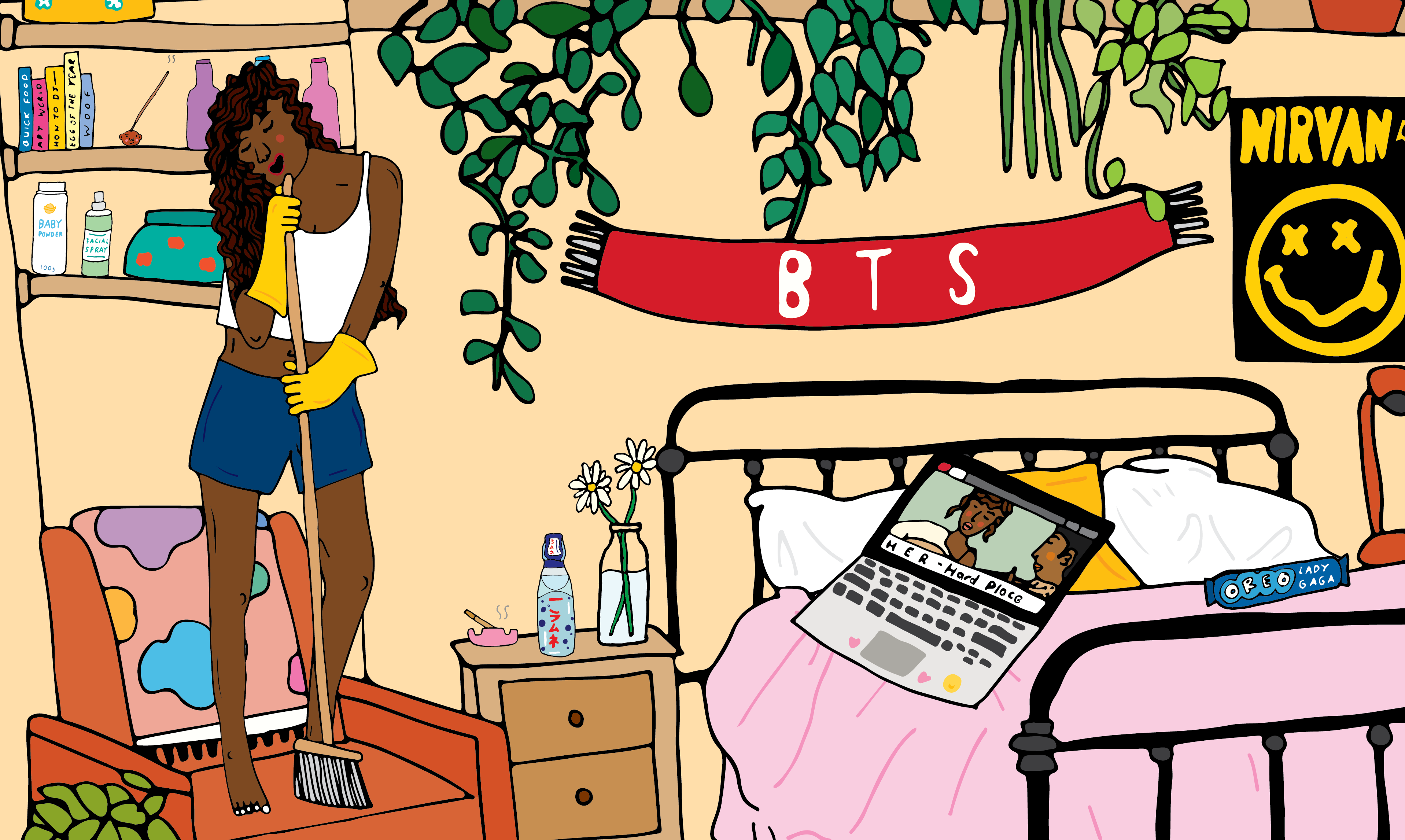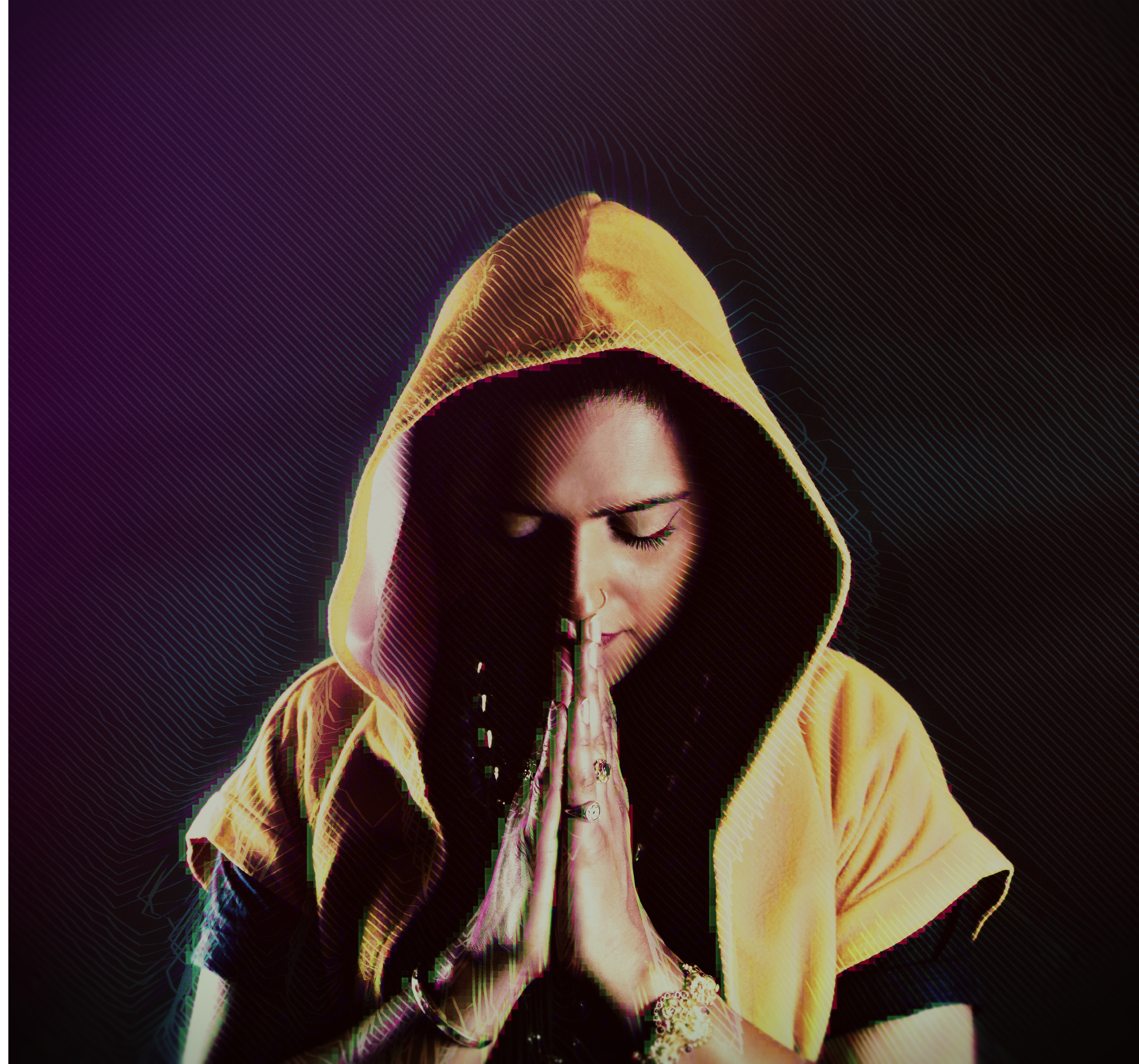
If you’re familiar with the queer British Asian scene, chances are you already know of LOIAL by her real name: Reeta Loi. A London-based activist, as part of Gaysians she has helped pioneer and organise community and space for those who identify as LGBTQIA+ among South Asians in the UK.
But Reeta, a queer, dalit British Indian woman, is also an artist. Combining everything from dance, jazz, soul, Indian classical and 70s and 80s Hindi film music, as LOIAL her sound is at once soothing and playful. Her new track ‘Too Late’ is what she self-describes as “a fuck you to people in the past” – it’s a calming ode to letting go, with kaleidoscopic visuals and vocals manipulated to emulate a call and response between a lower, “masculine” register and her own voice.
We caught up with her to find out more about her journey, her family, and how she’s learned to stop compartmentalising her identity.
gal-dem: Can you tell us a bit about your journey? When did you start making music?
Reeta Loi: I’ve been singing all my life: performances at school, musicals, the choir, before performing with jazz bands mainly in Brixton. I was frontwoman of a trip-hop band called Lo Freq for about five years which was loads of fun. I then learned to produce so that I could get the sounds in my head out in the real world – I’d always worked with male and usually non-Asian producers and found a lot got lost in translation, plus there’s always an element of compromise. I love collaborating with other artists, but needed to spend some time working solo and geeking out in my studio experimenting with sound.
“The sexual liberation of South Asian women is yet to happen, but is on its way!”
You’re an activist in British South Asian queer spaces, is your work another way to give visibility to your cause?
I approach everything from the same place – whether music or activism, it’s all coming from a combination of identities and experiences that many people recognise or relate to, but may not get to see or hear. As Asian women we are still silenced and this is massively amplified for those of us who are also queer. The sexual liberation of South Asian women is yet to happen, but is on its way! As for my audio and visual aesthetic, I like to use audio memories and recreate sounds from childhood or my past. I started sampling Hindi film vinyl because I have a collection of my dad’s records that are full of nostalgia for me. I wanted to revisit this in my music as a way to stay connected to him, and fuse my past and my culture with my present.
Given that the track is about letting go, tell us a bit about your history with your family and coming out?
I was disowned by my family about 13 years ago on coming out to them. Disownment forces us into silence, isolation and depression which is why there are so few voices that are able to speak out about their experience. It took me many years to find the strength to be able to be a voice for our community, and to choose to use my own name, but it has also led me to discover my culture for myself when I felt a huge part of my identity had been taken away. When I came out to my family, the Asian people I knew were straight and the queer people I knew were white and the spaces I was in echoed this – I felt my identity was compartmentalised. Where could I be queer and Asian and accepted? It took time but I began to reconcile this within myself through writing, activism, putting on events and music. Now I’m able to call forth the beauty and gifts in every part of who I am and not hide anything, and that’s really freeing and empowering, especially as an artist.
On the track you’ve subverted the concept of a call and response between a man and a woman, can you unpack that a bit for us? It’s cool as well because gender binaries weren’t so much of a thing pre-colonialism in South Asia, so I guess there’s something kind of radical in deconstructing masculinity and femininity.
I’ve always loved Lata Mangeshkar’s voice, it’s so sweet and her upper-range is exquisite. My vocals have always been at a lower register, so I started to play around with sampling the vocals of singers like Lata from old Bollywood films like Bobby and Do Badan and then singing a love song to them. My voice naturally became the replacement for the men’s vocals. I love the gender aspect of having two women singing a love song to each other, which for me seems quite normal but for most people will sound radical to hear, especially as I’m incorporating a traditional vocal. I also sometimes distort my vocals to bring out a more masculine voice, which for me represents my masculine aspect supporting me where the prominent masculine reference in my life (my dad) has not been present. LOIAL represents a deity, a powerful Godess that is at peace with her divine feminine and masculine energy. This calls upon queer Indian mythology and characters like Shikhandi.
“When I came out to my family, the Asian people I knew were straight and the queer people I knew were white, and the spaces I was in echoed this – I felt my identity was compartmentalised. Where could I be queer and Asian and accepted?”
There’s something quite soothing about your sound, is that intentional?
I’ve never really thought about it! Singing is so healing and has always been a core part of how I stay connected to my own energy. I find it meditative. I’m a Buddhist and chant daily so for me, the voice and sound are extremely powerful and healing. Perhaps that’s why it sounds soothing.
What do you want listeners to take away from your work?
I hope that people take a sense of connection, healing and empowerment from my music. I’m looking forward to developing my live show which is currently in the works, but for now, I’m gonna keep playing in my studio and sharing my sounds because that’s the most radical thing I can do.
LOIAL has new music out throughout the year, you can listen to her on Spotify. She will also be participating in a residency for Haramacy Festival at The Albany in Deptford, collaborating with a range of Middle Eastern and South Asian multi-disciplinary artists, showcasing on 27th April.

